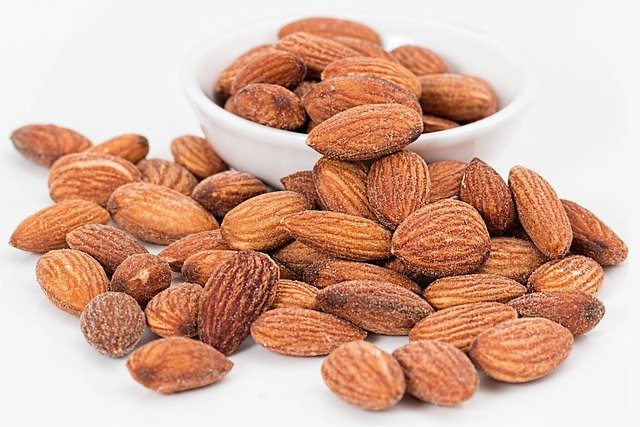
Health Benefits of Protein
- Muscle Growth and Repair
- Role in Muscle Development: Protein is crucial for building and repairing muscle tissues. It provides the amino acids necessary for muscle recovery after exercise, which is why athletes often emphasize protein intake.
- Muscle Synthesis: Consuming adequate protein supports muscle protein synthesis, helping maintain or increase muscle mass, especially important as we age.
- Enzyme and Hormone Production
- Biochemical Functions: Proteins act as enzymes that facilitate biochemical reactions in the body. Hormones like insulin are also proteins, playing key roles in regulating metabolism and blood sugar levels.
- Immune Function
- Antibody Production: Proteins contribute to the immune system by forming antibodies, which help identify and neutralize pathogens like bacteria and viruses.
- Satiety and Weight Management
- Appetite Control: High-protein foods can promote feelings of fullness, reducing overall calorie intake and aiding in weight management.
- Thermic Effect of Food (TEF): Protein has a higher thermic effect compared to fats and carbohydrates, meaning the body uses more energy to digest protein-rich foods.
Daily Protein Requirements
- General Recommendations:
- The Recommended Dietary Allowance (RDA) for adults is 0.8 grams of protein per kilogram of body weight. For example, a person weighing 70 kg (about 154 lbs) would need approximately 56 grams of protein per day.
- Active Individuals and Athletes:
- Protein needs may increase to 1.2 to 2.0 grams per kilogram depending on the intensity and type of physical activity. Endurance athletes may aim for the lower end, while strength athletes may require the higher end.

Best Sources of Protein
- Animal Sources:
- Meat: Chicken (31g per 100g), turkey, beef (26g per 100g), and pork.
- Fish: Salmon (25g per 100g), tuna, and sardines.
- Dairy Products: Greek yogurt (10g per 100g), cheese, and milk (3-8g per serving).
- Eggs: About 6g of protein per large egg.
- Plant Sources:
- Legumes: Lentils (9g per cooked 100g), chickpeas (9g), and beans (6-9g).
- Soy Products: Tofu (8g per 100g) and tempeh (19g).
- Grains: Quinoa (4g per cooked 100g) and whole grains like brown rice.
- Nuts and Seeds: Almonds (21g per 100g), chia seeds (17g), and hemp seeds (31g).

Signs of Protein Deficiency
- Muscle Weakness:
- A lack of protein can lead to decreased muscle mass and strength, making everyday activities more challenging.
- Fatigue:
- Insufficient protein intake can result in tiredness and low energy levels due to inadequate muscle repair and overall nutrient deficiency.
- Immune Issues:
- Frequent infections or illness can indicate a weakened immune system due to low protein levels.
- Skin and Hair Problems:
- Deficiency can lead to dry skin, hair loss, or slower wound healing, as protein is necessary for tissue repair and growth.
Potential Side Effects of Excessive Intake
- Kidney Damage:
- High protein intake can be harmful for individuals with pre-existing kidney issues, as it increases the kidneys’ workload in processing nitrogen waste from protein metabolism.
- Dehydration:
- Increased protein intake can lead to dehydration because the body requires more water to flush out excess nitrogen.
- Digestive Issues:
- Consuming large amounts of protein, particularly from animal sources, may result in constipation or diarrhea, especially if fiber intake is low.
- Nutrient Imbalance:
- Focusing heavily on protein can lead to deficiencies in other essential nutrients if it results in reduced intake of fruits, vegetables, and whole grains.
Conclusion
Understanding protein’s role in your diet is crucial for maintaining overall health. Balancing protein intake with other nutrients and listening to your body’s needs can help you achieve optimal health. If you have specific dietary needs or health conditions, consulting a healthcare professional or registered dietitian is always a good idea!

1. What are the health benefits of protein?
Answer: Protein helps build and repair tissues, supports muscle growth, boosts the immune system, and aids in weight management by promoting satiety.
2. How much protein do I need daily?
Answer: Adults generally need about 0.8 grams of protein per kilogram of body weight, with higher needs for athletes (1.2 to 2.0 grams).
3. What are good sources of protein?
Answer: Good sources include meat, fish, dairy, eggs, legumes, nuts, seeds, and whole grains.
4. What are the signs of protein deficiency?
Answer: Signs include muscle weakness, fatigue, immune issues, and skin or hair problems.
5. Can you have too much protein?
Answer: Yes, excessive protein can lead to kidney strain, dehydration, digestive issues, and nutrient imbalances.
6. Is plant-based protein as good as animal protein?
Answer: Yes, both can provide essential amino acids, but combining different plant sources can ensure a complete protein intake.
7. How can I increase my protein intake?
Answer: Incorporate protein-rich foods into each meal, consider protein shakes or bars, and snack on nuts or yogurt.
8. What happens if I don’t eat enough protein?
Answer: Insufficient protein can lead to muscle loss, weakened immunity, and overall fatigue.







